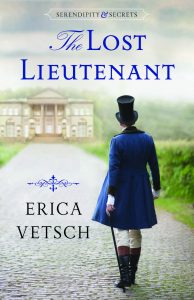by Erica Vetsch, @EricaVetsch
It’s writing contest season! Did you know that writing contests were a thing? Or maybe you’ve been considering entering a writing contest and are wondering what to expect. Let’s dive into the basics of writing contests!

First, my bona fides. I entered my first writing contest more than a decade ago. I entered several, but my favorite was the ACFW Genesis Contest. I finaled four times with four different manuscripts, and I won once. In the years since, I have judged many times for many different contests, and I enjoy the process very much.
So, what are the basics of writing contests?
- What to expect from a writing contest.
- People you don’t know will read and evaluate your book, comment on it and give it a score.
- You will receive consistent feedback on areas you need to improve.
- You will receive inconsistent and sometimes contradictory feedback based upon the reader’s preference.
- Industry professionals and veterans may take a look at your stuff.
- Benefits of entering writing contests.
- Getting fresh, experienced eyes on your work, and receiving honest, non-agenda driven feedback from people who know what they’re doing.
- A quick way to see where your strengths and weaknesses lie. (We all have them!)
- A chance to evaluate what’s said about your work, see if it rings true, and take or leave it. (A valuable skill!)
- Networking and friendship building. Start getting your name and your work in front of people who can help you take it where you want it to go.
- Tips for entering contests.
- Manage expectations. Do NOT expect to win your first contest. Expect to gain valuable experience. Expect that some of the comments might sting for a bit. Expect to have to work through your feelings about those comments.
- Read the instructions. I can’t tell you how many people miss this part, or seem to think exceptions will be made just for them. Know the formatting guidelines, what category to enter your manuscript in, the deadlines, etc. These are super-easy steps that will automatically put your manuscript ahead of those who didn’t bother to follow the guidelines.
- Realize that not all contests are the same. Some want the first five pages, some the first fifty. Some require a synopsis, some want a 100 word blurb. Start small. Enter one contest that requires the bare minimum. Get your results, apply what you’ve learned, and then enter one of the bigger contests with larger requirements.
- What to do afterwards.
- Read your scores and comments, and then put them away for 24-48 hours. You won’t be able to stop thinking about them, but don’t obsess and keep reading them. Let the comments sink in, and let the emotions fade a bit. It can be tough, especially the first time, to hear criticism of your work. But that’s what you’re paying for. Remove your emotions from the process.
- Evaluate the feedback. Did more than one judge point out the same issue? Take those comments seriously. Do some comments seem like they came from left field? Take a bit of time, evaluate those comments, do a bit of research, and decide if they are something you need to change or work on.
- Pen a thank you note to your judges and/category coordinator. Thank them for their time (They’re almost always volunteers!) and for sharing their experience and thoughts with you. Even if you didn’t like what they had to say! Be gracious!
Common questions:
- What does the contest do with my entry? Beyond judge it, nothing. Entries are commonly kept until the results are published and awards given. Then the judges delete your entry from their computers.
- Why do I need writing contests? I’m going to publish my book myself. Unless you have paid a professional editor to edit your story, there are most likely things that you cannot detect or see because you are too close to the work. A writing contest is a fairly inexpensive way to get your work before more than one professional for evaluation and editing. You want to publish your best work.
- Do writing contest awards really catch the attention of agents and editors? Winning a prestigious writing contest doesn’t guarantee an agent or editor will want to see your work, but it does tell industry professionals certain things about you.
- You’re serious about your work. You want to get better.
- You know how to write a synopsis and opening chapters.
- You are willing to have your work evaluated by someone and have survived being critiqued.
I am a big believer in unpublished writers entering writing contests, especially if they approach them from a willingness to learn standpoint. Follow the basics, and you’ll reap great rewards, even if you don’t win!

He’s doing what he can to save the Prince Regent’s life . . . but can he save his new marriage as well?
Evan Eldridge never meant to be a war hero–he just wanted to fight Napoleon for the future of his country. And he certainly didn’t think that saving the life of a peer would mean being made the Earl of Whitelock. But when the life you save is dear to the Prince Regent, things can change in a hurry.
Now Evan has a new title, a manor house in shambles, and a stranger for a bride, all thrust upon him by a grateful ruler. What he doesn’t have are all his memories. Traumatized as a result of his wounds and bravery on the battlefield, Evan knows there’s something he can’t quite remember. It’s important, dangerous–and if he doesn’t recall it in time, will jeopardize not only his marriage but someone’s very life.

Best-selling, award-winning author Erica Vetsch loves Jesus, history, romance, and sports. She’s a transplanted Kansan now living in Minnesota, and she married her total opposite and soul mate! When she’s not writing fiction, she’s planning her next trip to a history museum and cheering on her Kansas Jayhawks and New Zealand All Blacks. You can connect with her at her website, www.ericavetsch.com where you can read about her books and sign up for her newsletter, and you can find her online at https://www.facebook.com/EricaVetschAuthor/ where she spends way too much time!
